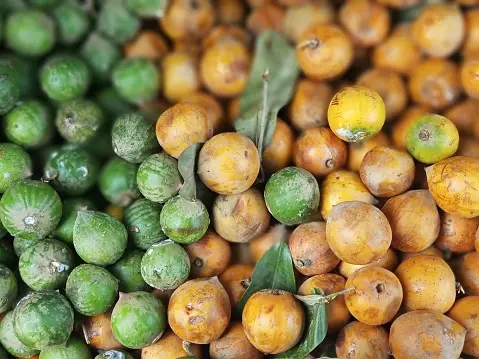Maintaining good oral health for your baby is essential for their overall well-being. Cleaning a newborn's tongue is an important practice that promotes oral hygiene and can have long-term benefits for dental health. Paediatricians recommend tongue cleaning early to establish healthy oral habits.
The use of alum, a common ingredient in traditional oral care, is a topic of interest regarding dental health in babies. Understanding the role of alum and its potential effects can help you make informed decisions for your little one's oral care.
Why should you clean your baby's tongue?
Cleaning your baby's tongue is essential to promote good oral hygiene and overall health. Cleaning your baby's tongue helps remove bacteria and milk residue that can accumulate on the tongue's surface. This practice can prevent the buildup of harmful microorganisms, which may contribute to bad breath and oral infections.
How often should you clean your baby’s tongue?
You should clean your baby's tongue ideally after every feeding or at least twice a day. It helps keep your baby's tongue clean and fresh, contributing to good oral hygiene.
Making tongue cleaning a part of your baby's daily routine can promote a healthy mouth and establish positive dental habits from an early age.
Benefits of cleaning your baby’s tongue
- Reduces bacteria
- Prevents bad breath
- Promotes oral hygiene
- Establishes good habits
- Enhances feeding experience
- Improves digestion
- Comfort and freshness
- Reduces risk of oral issues
What is an alum?
Alum is a chemical compound commonly used for various purposes, including traditional oral care and as a food additive.
Uses of alum
- Traditional oral care
- Food additive
- Astringent properties
- Home remedy for dental issues
- Water purification
- Antiseptic agent
- Deodorant
- Skin toner
Using alum to clean your baby’s tongue and gums: Is it safe?
Using alum to clean your baby's tongue and gums is unsafe. Alum is a chemical compound that may be harsh and potentially harmful if ingested or applied to sensitive areas like a baby's tongue.
Stick to safer and more gentle methods, such as using a soft, damp cloth or a silicone baby tongue cleaner, to clean your baby's tongue and gums.
Can alum harm your baby's tongue?
Using alum for your baby's oral care may have potential side effects and harm. Some of the side effects of using alum for a baby's oral care include:
- Ingestion risk
- Mouth irritation
- Swelling or redness
- Allergic reactions
- Discomfort or pain
What are other medically recommended options for cleaning your baby’s tongue and gums?
Various medically recommended options for cleaning your baby's tongue and gums exist. Common ones include:
- A soft, damp cloth
- Silicone baby tongue cleaner
- Infant toothbrush with soft bristles
- Gauze pad
- A finger cot or finger brush
- Water only (avoid using toothpaste until older)
Safe and medically recommended options exist when cleaning your baby's tongue and gums. A soft, damp cloth, silicone baby tongue cleaner, or infant toothbrush can help maintain good oral hygiene.
Always prioritise your baby's well-being and consult a paediatrician for the best cleaning method for your little one. Keeping your baby's mouth clean and healthy from an early age sets the foundation for good oral habits in the future.
Frequently Asked Questions (FAQ)
Can I use alum to clean my baby's tongue?
It is not recommended to use alum to wash your baby's tongue. Alum is a chemical compound that may be harsh and potentially harmful if ingested or applied to sensitive areas like a baby's mouth.
Stick to safer and more gentle methods, such as using a soft, damp cloth or a silicone baby tongue cleaner, to clean your baby's tongue.
What can I use to clean my baby's tongue?
Medically recommended options for cleaning your baby's tongue include using a soft, damp cloth, a silicone baby tongue cleaner, or a soft toothbrush with soft bristles. These methods are safe and gentle for your baby's mouth.
How many times should I clean my baby's tongue?
You can clean your baby's tongue regularly, ideally after every feeding or at least twice a day. Regular tongue cleaning helps maintain good oral hygiene and contributes to a healthy mouth. Make it a part of your baby's daily routine to establish positive dental habits early on.










Comments